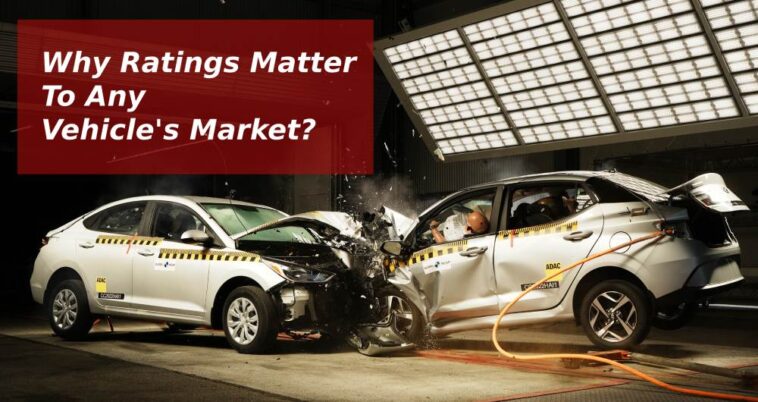When it comes to buying a new car there are many things that we all consider before buying it. However, there is still a question popping in people’s minds and it is, how do ratings play an important role in any car or bike market, can a car with less rating still rock on the road, and so on? Although, no doubt that before entering any certain showroom we already do a deep research and after finding everything meeting our needs we go and spend our money. But do you know there are still some things that you can usually avoid that do not as important as other things? Well, scroll on to know the complete information.
The car market is incredibly competitive, with countless brands and models vying for attention. One factor that can make a significant difference in a vehicle’s success or failure is ratings. Ratings provide valuable insights to potential buyers regarding the quality, reliability, and safety of a particular car model. Positive ratings can increase a car’s market appeal, whereas negative ratings can turn buyers away. Here we will illuminate your sight towards the various types of ratings and how they impact a vehicle’s market success.
How Many Types of Ratings Are There?

Well, as you might have been looking for the type of ratings that matters then here are several types of ratings that are used to evaluate a vehicle’s performance, safety, and reliability. Here are the major or better say most common ratings you might come across when researching a car.
- Crash Test Ratings: Crash tests are conducted to evaluate the safety of a vehicle in the event of a collision. These ratings provide information about the car’s ability to protect passengers and reduce the risk of injury in an accident.
- Fuel Economy Ratings: These ratings provide information on a vehicle’s fuel efficiency. Buyers can use this information to estimate the vehicle’s cost of ownership and how much they might spend on fuel expenses.
- Reliability Ratings: Reliability ratings provide information on a car’s overall dependability and the likelihood of needing repairs over time. These ratings can help buyers make informed decisions about the cost of ownership and long-term maintenance expenses.
- Consumer Reviews: Consumer reviews provide real-world feedback from other car owners. These reviews can offer insights into the car’s driving experience, features, and overall satisfaction.
What Things Can Be Avoided While Buying a Car?
Although, buying a car is a decision that takes much time for anyone especially when the buyer is buying his or her life’s first car. But do you know that there are some things that can be avoided while purchasing a car, here are some certain things that buyers can avoid to ensure they get the best value for their money.
- Ignoring Ratings: As we’ve discussed, ratings can provide valuable insights into a vehicle’s performance, safety, and reliability. Ignoring ratings can lead to purchasing a car that doesn’t meet your needs or may end up costing more in the long run.
- Overpaying for Features: Car manufacturers often offer a wide range of features, from advanced safety features to entertainment systems. While these features can be appealing, they can also add to the cost of the car. Buyers should consider their needs and prioritize the features that matter most.
- Failing to Research Financing Options: Many car buyers focus solely on the car’s purchase price and overlook financing options. Interest rates, loan terms, and monthly payments can vary significantly between lenders, so it’s essential to research financing options to find the best deal.
However, there is no doubt that ratings do play a critical role in the car market. Because they provide valuable information to potential buyers, which can impact a car’s market success. As a buyer, it’s important to consider ratings when researching a car and avoid common mistakes like overpaying for features or failing to research financing options. By doing so, buyers can make informed decisions and find the best value for their money.






GIPHY App Key not set. Please check settings